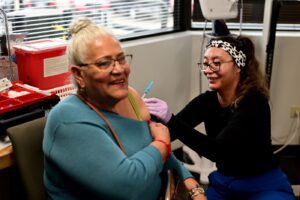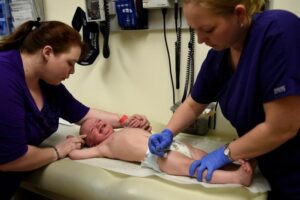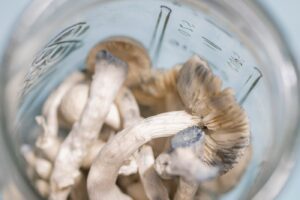A second phase 3 trial evaluating baricitinib, an oral Janus kinase (JAK) inhibitor, in adult patients with severe alopecia areata met its primary endpoint of hair regrowth across 2 dosing regimens.
The multicenter, randomized, double-blind, placebo-controlled adaptive BRAVE-AA1 trial (ClinicalTrials.gov: NCT03570749) evaluated the efficacy and safety of baricitinib in adults with severe alopecia areata, defined as a Severity of Alopecia Tool (SALT) score of at least 50 (eg, ≥50% scalp hair loss) and a current episode of severe alopecia areata lasting at least 6 months but less than 8 years. Patients were randomly assigned to receive baricitinib 2mg once daily, 4mg once daily, or placebo. The primary endpoint was the percentage of patients achieving SALT score of less than or equal to 20 at week 36.
Results showed that at week 36, the proportion of patients who reported at least 80% scalp hair coverage was significantly greater in the baricitinib 2mg (22%; P ≤.001) and 4mg (35%; P ≤.001) treatment arms compared with the placebo arm (5%). The safety profile of baricitinib was observed to be consistent with its known profile in rheumatoid arthritis and atopic dermatitis. The most common treatment-emergent adverse events reported were upper respiratory tract infections, headache and acne.
Continue Reading
Data from BRAVE-AA1 were consistent with findings from the first phase 3 trial (BRAVE-AA2; ClinicalTrials.gov: NCT03899259). In BRAVE-AA2, the proportion of patients who reported at least 80% scalp hair coverage was greater in the baricitinib 2mg (17%; P ≤.001) and 4mg (33%; P ≤.001) treatment arms compared with the placebo arm (3%).
Detailed data from both trials will be presented at scientific meetings later this year and submitted to peer-reviewed journals. The Company plans to submit a supplemental New Drug Application to the Food and Drug Administration for the alopecia areata indication in the second half of 2021.
“There is a pressing need for approved treatment options for people suffering from alopecia areata as existing topicals and steroids do not provide meaningful improvement for many patients,” said Maryanne Senna, MD, dermatologist and assistant professor of dermatology at Harvard Medical School and clinical trial investigator of BRAVE-AA1. “I am pleased to see such positive results from these important trials of baricitinib offering a much-needed potential breakthrough treatment option for this disease.”
Baricitinib is marketed under the trade name Olumiant and is currently approved for the treatment of moderately to severely active rheumatoid arthritis in adults who have had an inadequate response to 1 or more tumor necrosis factor antagonist therapies.
Reference
Lilly and Incyte’s baricitinib improved hair regrowth for alopecia areata patients in second phase 3 study. [press release]. Indianapolis, IN: Eli Lilly and Company; April 20, 2021.
This article originally appeared on MPR





